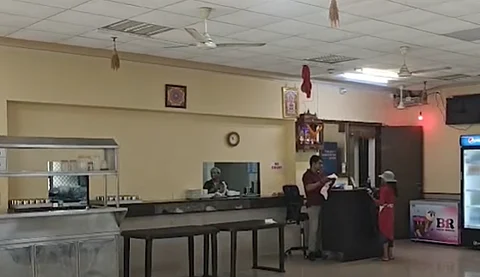Vijai Sardesai Alleges Corruption in Matanhy Complex Canteen Tender, Calls for SHG Involvement
Fatorda MLA Vijai Sardesai has alleged corruption in the awarding of the canteen contract at the Matanhy Saldanha Administrative Complex in Margao. He questioned the transparency of the tendering process and criticized the decision to bypass self-help groups (SHGs), which he said are best suited to offer authentic Goan food at reasonable prices.
Sardesai’s criticism stemmed from the observation that the current contractor-led model has led to steep meal prices, making it unaffordable for many—especially government employees, daily visitors, and the general public who rely on subsidized food options. He argued that this not only affects affordability but also raises concerns about whose interests the tender process is serving.
Why weren't SHGs awarded the contract?
The MLA highlighted that SHGs—often led by local women—have successfully run canteens in other government establishments, offering clean, homestyle meals at accessible prices. He called the exclusion of SHGs from the Margao complex a missed opportunity to empower grassroots entrepreneurs and promote traditional Goan cuisine within a public institution.
Is there evidence of corruption?
While Sardesai did not present direct evidence, he cited irregularities and a lack of transparency in the process as red flags. The awarding of the contract to a private contractor, despite an existing MMC resolution favoring SHGs for such services, raises suspicion, he said. The sharp increase in meal prices further fuels the perception that profit, not public interest, is driving the operation.
What broader issues are at play?
Sardesai’s remarks come as the Matanhy Saldanha Complex continues to face scrutiny over delays and service-related issues, including the pending relocation of the district treasury. The MLA linked the canteen controversy to a broader pattern of administrative lapses and lack of accountability in managing public infrastructure.
How does this affect local communities?
The decision, Sardesai argued, not only sidelines small vendors and SHG workers but also undermines the cultural and economic ecosystem that thrives around Goan cuisine. He urged the authorities to reconsider their approach, suggesting that giving SHGs priority in future tenders would ensure both affordability and support for local livelihoods.
Sardesai’s appeal goes beyond the issue of food pricing—it touches upon governance, community empowerment, and the role of local culture in public spaces. “We must ask not just who’s feeding us, but who’s being kept out,” he said.

